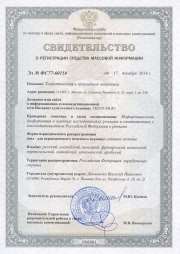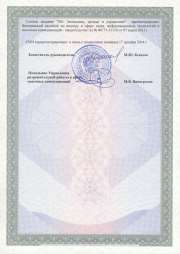MAIN PAGE
> Back to contents
Publications of Bekulova Suzanna Robertinovna
|
National Security, 2023-4
|
|
Obolenskaya L.V., Bekulova S.R. - Structural-hierarchical approach to the investment model of economic growth
|
|
pp. 19-38
|
DOI: 10.7256/2454-0668.2023.4.68754
Abstract: The subject of the research is the investment model of economic growth, which in today's Russia is given significant attention at the government level. In a number of scientific studies, investments are interpreted as a significant factor of economic security. In line with this topic, the goal is to form an investment growth model that combines national economic growth goals, investment objectives, growth-driving industries, conditions and regulatory influences into a single structure. The article uses methods and means of structural, economic, causal analysis and predictive statistical estimates. The novelty of the research consists in substantiating and developing an investment model of economic growth in the form of a hierarchical structure that includes five levels: target level, task level, industry, factor and regulatory levels. The possibilities of filling the levels are shown by the example of Russia, taking into account today's sanctions realities. Attention is focused on the manufacturing industry. When filling in the industry level, it is concluded that it is advisable to take into account the index of economic complexity as an additional criterion for identifying industries-locomotives of growth. When filling in the factor level of the model, the dual nature of anti-Russian sanctions is shown, which, along with negative factors, also generate certain business opportunities. When filling out the regulatory level, a number of financial and investment measures are allocated (subsidizing investment projects, state support for loans, tax incentives) that are in demand by Russian business under sanctions. In terms of the country's technological security, industries are cited where dependence on imported components is particularly critical. Priority financial and investment support should be directed to overcoming critical dependence. The results obtained can be useful for information and analytical support of industrial policy. The proposed approach to the investment model of growth will help to streamline the basic components of decision-making within a single structure, taking into account cause-and-effect relationships and sanctions realities.

|
National Security, 2023-3
|
|
Bogachev Y.S., Bekulova S.R. - Improvement of Digitalization Support Institutions as a Strategic Direction for Improving the Technological level of the Russian Manufacturing Industry
|
|
pp. 79-91
|
DOI: 10.7256/2454-0668.2023.3.43718
Abstract: The digital transformation of industry is one of the priorities of the development of the economy of the Russian Federation, as the introduction of modern technologies in production has a positive impact on the development of other industries. The basis for the introduction of digital technologies in industry is the desire for a comprehensive increase in efficiency and the creation of conditions for the successful operation of industries. Increasing the effectiveness of institutional support for the digitalization of Russian industry is especially relevant in the context of increasing geopolitical tensions. In this regard, the authors conducted a study aimed at analyzing the organizational structure of tools to support digitalization of the manufacturing industry and developing recommendations for its improvement. The authors analyzed the structure of the institutions of digitalization of the Russian industry, which includes six main institutions. Priority technologies and directions for the development of digitalization of industry corresponding to global trends are highlighted. According to the authors, in order to create a single digital space, a single platform can be created on which institutions can be located and interaction between them can be organized through the allocated priority technologies. Based on the results of the analysis of the organizational structure of tools to support the digitalization of the manufacturing industry, proposals have been developed to create a system of digitalization of the Russian industry that meets the level of threats to the Russian economy from the alliance of countries led by the United States.

|
National Security, 2023-1
|
|
Moreva E.L., Bekulova S.R. - Sustainable Development Strategies of North American Countries, China and India as a Factor of Security of the Arctic Region
|
|
pp. 13-27
|
DOI: 10.7256/2454-0668.2023.1.39290
Abstract: The Arctic, as an object of modern attention, is a center of attraction not only for Arctic and near-Arctic countries, but also for countries that are located at a fairly remote distance from the Northern Hemisphere. The high interest in the development of the Arctic is caused by geopolitical, economic and other factors. In these conditions, the Arctic becomes a zone of intersection of interests of many countries. The activation and expansion of the economic activity of previously existing and new players in the Arctic can pose both real and potential threats, as well as potential, a new round on the way to improving the level of national security of the Russian Federation in the Arctic region. In this regard, the analysis of foreign Arctic strategies and the study of foreign experience in the development of the Arctic is relevant. The purpose of the work is to analyze the Arctic strategies of the United States, Canada, China, and India for compliance of their national interests with the regional (Arctic) and search for opportunities to use their best practices to ensure sustainable development in Russia. The subject of the study is the mechanisms of management of the development of Arctic and near-Arctic territories. The methodological basis of this study is a systematic, comparative analysis, methods of synthesis, induction and deduction. It is revealed that the models of the policy of supporting the sustainable development of the Arctic of the countries of the North American continent demonstrate ambiguous effectiveness of their implementation. It is shown that the great prospects for supporting the sustainable development of the Arctic contain the emerging and developing models of the state Arctic policy of China and India.

|
National Security, 2022-6
|
|
Moreva E.L., Bekulova S.R. - On the Issue of Attitude to Scientific and Technological Relations and Assessment of its State in the Russian Economy
|
|
pp. 83-108
|
DOI: 10.7256/2454-0668.2022.6.39198
Abstract: In the context of sanctions pressure on the Russian economy, it is important to modernize the national economy, production and effective development of scientific knowledge, development and implementation of modern equipment and technologies in production to create conditions for safe and sustainable socio-economic development. The aim of the work is to form a set of indicators that assess the potential of scientific and technological development of the Russian economy. The object of the study is the scientific and technological development of the Russian economy. The subject of the study is the methodology for assessing the scientific and technological potential of the economy. The methodological basis of the study is the methods of analysis and synthesis, induction and deduction, and statistical analysis. The authors analyzed and identified three theoretical approaches to the definition and evaluation of scientific and technical potential. Based on the results of the analysis, the need to identify and distinguish between the terms «scientific and technical potential» and «scientific and technological potential» was revealed. It is revealed that the reason for identifying the adjectives «technological» and «technical» returns to the difference in approaches to the definition of the term «technology». The narrow and broad interpretations of technologies are singled out, on the basis of which the author's definition of scientific and technological potential is proposed. By analyzing the methodology of a number of international indices and reports that evaluate the scientific and technical potential, the authors propose a set of indicators that evaluate the scientific and technological potential of the national economy. Using the proposed set of indicators, the authors determined the state and dynamics of the development of the scientific and technological potential of Russia.

|
National Security, 2022-5
|
|
Moreva E.L., Obolenskaya L.V., Bekulova S.R. - On the question of choosing the organizational form of the digital space for the safe development of Russian business
|
|
pp. 117-134
|
DOI: 10.7256/2454-0668.2022.5.39048
Abstract: In the context of the global trend of digital transformation of industry, the formation of digital spaces is one of the important tasks of business and national economies. The diversity of forms of digital spaces in modern industry has led to the need for their theoretical ordering, structuring and classification in order to create conditions for the most correct choice of the form of its implementation in practice. The purpose of this work is to solve the problem of choosing the optimal form of organizing the digital space to increase the security of business development and the national economy. The object of the study is the process of digital transformation of the modern economy and industry. The subject of the study is the forms of organization of digital spaces in modern industry. The analysis of the forms of organization of digital spaces indicates their diversity and complexity. It is shown how the organization of a digital space suitable for business increases the efficiency of its functioning. Special attention is paid to the analysis of the consequences of the transition to a digital business model. It is established that the choice of the form of organization of the digital space returns to the peculiarities of business functioning. One of the main criteria for choosing the form of organization of the digital space is how the business operates: independently or within the value chain. It is shown that one of the consequences of the trend of progressive growth of digital data flows between different subjects of different levels is the emergence and aggravation of imbalances in their digital spaces. In these conditions, the participation of the state is necessary to ensure the security of business development and the national economy.

|
National Security, 2022-4
|
|
Bekulova S.R. - Two paradigms of crisis processes in the world economy in the XXI century
|
|
pp. 15-24
|
DOI: 10.7256/2454-0668.2022.4.38565
Abstract: Currently, crisis processes are observed in the world and national economies, which have a negative impact on the level of their socio-economic development. In the context of the development of crisis processes in the world economy, research aimed at solving the fundamental problem of determining their causes is relevant. The purpose of this work is to identify theoretical approaches to explaining the nature of the current crisis processes in the world economy. The object of the study is the dynamics of the development of the world economy. The subject of the study is the paradigms of crisis processes in the world economy. The methodological basis of this study is the fundamentals of system, statistical, comparative analysis and synthesis methods. As a result of the review, it was determined that two paradigms of explaining crisis processes have developed in the economic literature. The reason for the divergence of views of macroeconomists of the two paradigms is shown. An attempt is made to consider the current crisis as a result of the influence of structural and market factors. The importance of solving the problem of finding the nature of the generation of crisis processes is demonstrated by the example of the difference in the ways of their resolution depending on the cause of occurrence. It was revealed that signs of economic decline were observed in the leading national economies in the "pre-pandemic" period, and the negative economic consequences of the spread of coronavirus infection only intensified the negative dynamics of the development of national economies.

|
Theoretical and Applied Economics, 2021-4
|
|
Bekulova S.R. - Social production as economic category
|
|
pp. 64-74
|
DOI: 10.25136/2409-8647.2021.4.36956
Abstract: The study of social production and the problems of improving its efficiency traditionally hold one of the central places in the economic science. This article analyzes the essence of social production, as well as offers an original definition of social production as economic category. The object of this research is a set of economic ties and processes that are generally important for business entities in the conditions of functionality of the national economy. The subject of this research is the socioeconomic relations that arise in the process of social production and reproduction. Methodological framework is comprised of the fundamentals of systemic and comparative analysis, as well as methods of synthesis, induction and deduction. The scientific novelty lies in formulation of the conceptual approach towards determining the essence of social production as economic category using interdisciplinary analysis of its content within the framework of general sociological, socio-philosophical, and political-economic approaches. The similarities and differences of interpretation of social production in cognate disciplines are established. The author determines that social production is an independent subject of science only for the political economy. The tendencies towards narrowing down, as well as broadening the scope of interpretation of social production are outlined. The reasonableness of its identification with the concepts of “material production” and “direct production” is analyzed. The author provides the original definition of “social production” as economic category.

|
National Security, 2021-1
|
|
Bekulova S.R. - The problems of efficiency of social production in the conditions of global economic turbulence
|
|
pp. 1-9
|
DOI: 10.7256/2454-0668.2021.1.35063
Abstract: The goal of this article consists in the analysis of current trends of the global economy, as well as forecast of their impact upon the global and domestic social production. Geopolitical and geoeconomic conditions for the functionality of global economy, established as a result of spread of coronavirus infection, impact social production of the national economies. The subject this research is the socioeconomic ties and relations that emerge in the context of transformation of global economy, resulting from shift in global economic and technological modes. The information framework for this work is comprised of the regulatory strategic documents and statistical databases. The conducted research demonstrates the impact of technological and global economic factors upon the efficiency of social production. The analysis of the global economic conjuncture reveals the two polar alternatives of the transformation of global economy: strengthening of globalizational processes, or setback in globalization and focus on regionalization of the world economy. The effect of consolidation of the countries in the context of the new world order upon the principles of sovereignty of national economies is described. The author indicates the discrepancy of objectives of number of strategic documents of the development of Russian economic sectors, namely with regards to the process manufacturing. The author outlines the negative consequences of dependence of the national economy on import of the components on the example of aviation industry.

|






